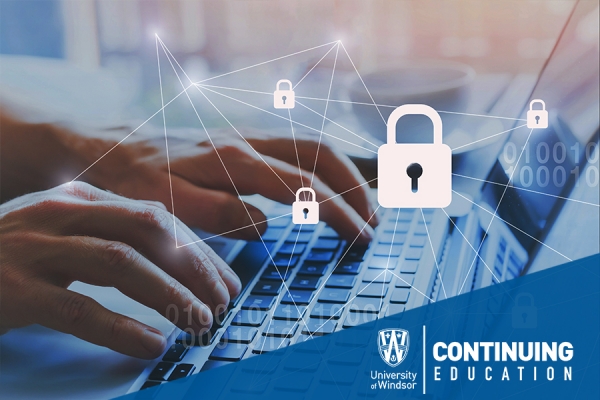 Continuing Education is now accepting registration for classes leading to a Certificate in Cybersecurity.
Continuing Education is now accepting registration for classes leading to a Certificate in Cybersecurity.
The digital era brings businesses increased opportunities, but also a new level of potential danger, with a resultant need for professionals skilled in cybersecurity.
Continuing Education is offering a Certificate in Cybersecurity comprised of two classes:
- Cybersecurity I – Introduction to Systems Security, and
- Cybersecurity II – System Implementation.
The courses are non-credit and can be taken individually, or complete both to receive the certificate. Classes are all online and open for registration.
Upon completion of the certificate, learners will be able to investigate a network and create a report recommending steps to mitigate threats, attacks, and vulnerabilities. The courses are designed to provide foundational cybersecurity concepts. Content of this certificate is mapped with the CompTIA Security + curriculum for those who are interested in pursuing the certification.
Introduction to Systems Security covers fundamental topics such as the analysis of potential indicators to determine various types of threats, attacks and vulnerabilities, a broad understanding of security concepts in an enterprise environment, the recognition of secure application development, and more. Classes are 5:30 to 8:30 p.m. Wednesdays, starting May 11.
System Implementation is part two of the Cybersecurity Certificate. This course covers topics related to implementation of security solutions, incident response and governance, and risk and compliance. This includes but is not limited to understanding the implementation of secure mobile solutions, using the appropriate tools to assess organizational security, and identifying privacy concepts and risk management processes. Classes are 5:30 to 8:30 p.m. Wednesdays, starting Sept. 21.
Instructor Ikjot Saini is an automotive cybersecurity professional, the 2020 winner of the cyber woman of the year award, and inaugural WEtech Alliance Woman in Tech of the Year in 2019. She has published many research papers and journal articles, including V2X privacy schemes, engineering privacy attacks for equitable assessment, DSRC network congestion and routing protocols. Her extensive knowledge of the field allows her to introduce cybersecurity concepts in a way that is easily digestible even for beginners.
Dr. Saini notes that there is value when working in cybersecurity to having a background not related to technology.
“One of the misconceptions is that I have to be from a background that is close to IT or maybe engineering, and that would make me capable of learning and being part of the security sector,” she says.
Instead, she encourages learners from all backgrounds to register.
Watch the recording of an info session on the Continuing Education website. Cybersecurity I and II are now eligible for OSAP Micro-credential Application.
UWindsor alumni, staff, and students are all eligible for discounts. Email continue@uwindsor.ca to receive a discount code.
—Moneeza Sami
